DVD-Rip | .MP4 | 854×480 | MP3 Stereo @ 128 Kbit/s 48 KHz | 12 Hours | 8.66 GB
Genre: Darwinian Revolution | Label: The Great Courses | Language: English
“The Darwinian Revolution—24 absorbing lectures by award-winning Professor Frederick Gregory of the University of Florida—introduces you to the remarkable story of Darwin’s ideas, how scientists and religious leaders reacted to them, and the sea of change in human thought that resulted. Perhaps more than any other idea in science, Darwin’s theory of natural selection shows how a strikingly original concept can break the bounds of its discipline to influence society at large—in religion, politics, philosophy, and other spheres.”
“Published 150 years ago, Charles Darwin’s On the Origin of Species—the text that introduced the world to natural selection—is among a handful of books that have changed the world.
Born amid a ferment of speculation about evolutionary scenarios in the early 19th century; vilified and later pronounced dead at the turn of the 20th century; and spectacularly confirmed by discovery after discovery in succeeding decades—natural selection ranks with the theories of Copernicus and Newton for its iconic stature in science.
But the route to that status has been surprisingly circuitous and uncertain. Darwin’s profoundly revolutionary message has often been misunderstood, and so have his own views on evolution, the intellectual background that led to them, and the turbulent history of their reception.
Consider the following points:
Although Darwinism and evolution are often equated, evolution was debated long before Darwin’s time. Darwin’s innovation was to propose an astonishingly powerful process for how evolution took place: natural selection.
By 1900, Darwin’s theory was near death, superseded by the widely accepted view that evolution did indeed occur, but under a purpose-driven mechanism that had little to do with natural selection.
In the 1930s, Darwinism made a stunning comeback as researchers realized that the small variations required by natural selection were indeed driving evolution. The resulting “evolutionary synthesis” reigns to this day.
The Darwinian Revolution—24 absorbing lectures by award-winning Professor Frederick Gregory of the University of Florida—introduces you to the remarkable story of Darwin’s ideas, how scientists and religious leaders reacted to them, and the sea of change in human thought that resulted.
Perhaps more than any other idea in science, Darwin’s theory of natural selection shows how a strikingly original concept can break the bounds of its discipline to influence society at large—in religion, politics, philosophy, and other spheres.
Intellectual Dynamite
Natural selection is the elegantly simple idea that those members of a species that happen to be most well adapted to their surroundings and are best equipped to survive will tend to outlast others; and that over time, species change as a result.
How did Darwin arrive at this theory? Professor Gregory shows that he did so slowly and cautiously, since he was well aware that natural selection was intellectual dynamite, implying that no divine intervention was needed to populate the Earth with a rich diversity of life forms.
In working out the details of the theory, Darwin built on his own observations and on the insights of others, but he also made amazing leaps in the face of apparently contrary evidence.
These are some of the steps to natural selection that you investigate in The Darwinian Revolution:
Charles Lyell’s Principles of Geology argued that the forces that shaped Earth’s surface were slow-acting over eons, rather than operating quickly through planet-wide catastrophes, in accord with biblical views. Lyell’s theories suggested that the Earth was much older than commonly believed at the time. Darwin took Lyell’s book on his exploring voyage aboard HMS Beagle.
Darwin’s five-year expedition around the world on the Beagle was the most important event in his life, introducing him to a diverse panorama of flora and fauna that far surpassed his expectations, and which he spent years trying to understand.
Darwin was well acquainted with the ability of breeders to promote desirable traits in animals and plants. He took the next crucial step of asking whether this process did not also occur in the wild, under the pressure of the struggle for survival.
The theory that eventually emerged from these reflections was rushed to publication when Darwin got a letter from Alfred Russel Wallace, a British naturalist in Indonesia who had reached similar conclusions. But, despite the hurry, Darwin’s resulting work, On the Origin of Species, was a meticulously argued case that led to one of the greatest paradigm shifts in the history of science.
The Darwin Debate
Professor Gregory recounts the vigorous scientific criticisms that met Origin, including these objections:
On the basis of the rate at which the Earth was cooling, physicist William Thomson calculated that the planet could not possibly be old enough to harbor life forms that evolved by natural selection.
Engineer Fleeming Jenkin argued that, contrary to Darwin’s theory, favorable characteristics in an individual would have no chance of spreading through a much larger population.
Philosopher Ludwig Büchner praised Darwin’s commitment to the concept of evolution but saw a fatal flaw in natural selection due to its purposelessness—its failure to account for progress in nature.
You learn how each of these arguments was eventually answered, including the deep mystery that puzzled Darwin himself: What are the actual “atoms” of inheritance that are passed from generation to generation and that initiate evolutionary change? The answer would come long after Darwin’s death with the discovery of DNA as the genetic blueprint.
Religious Reactions
But the scientific controversies that Darwin encountered were overshadowed by the firestorm of criticism that he faced from religious thinkers, a reaction that has scarcely subsided to this day. Religious attacks on Darwin were inspired by a wide range of theological perspectives. However, most critics agreed with Darwin’s contemporary, the theologian Charles Hodge, that what was original with Darwin was a mechanism that resulted from unintelligent causes; that was the core of Darwin’s theory of natural selection, and that was what was unacceptable.
Ironically, the notorious Scopes “monkey” trial in 1925 focused on evolution in general, an idea that was widely accepted by many Christian thinkers. Natural selection, the radical theory that implied atheism in the eyes of many, hardly came up during the proceedings. Professor Gregory points out that the trial was a publicity stunt designed to promote the town of Dayton, Tennessee—not the persecution of a brave teacher for freely speaking out.
A noted authority on the development of modern science, Professor Gregory is uniquely qualified to probe the religious dimension of this subject, since he holds a degree from Gordon-Conwell Theological Seminary in addition to a Ph.D. in the History of Science from Harvard University. In The Darwinian Revolution, he brings the controversy up to date by carefully examining the claims of intelligent design, which is the latest and most sophisticated attempt to challenge Darwin on religious grounds.
Far-Reaching Questions
“We have every right to feel enormous pride at what evolutionary scientists have accomplished,” Professor Gregory says. But he notes that Darwin’s theories raise far-reaching questions about the nature of human identity, society, and the demarcation between science and the supernatural that defines the limits of human knowledge.
Explore the fascinating story of evolution in The Darwinian Revolution and let a remarkable teacher reveal the astounding implications this provocative theory has had on both science and society.”
“Course Lecture Titles
24 Lectures
30 minutes / lecture
01. The Meaning of Evolution
02. The Way It Used to Be
03. Theories of Evolution in the 18th Century
04. Fossils and Catastrophism
05. Theories of Evolution Just before Darwin
06. Why Evolution Was Rejected before Darwin
07. Darwin’s Conversion to Evolution
08. What’s in On the Origin of Species?
09. How Origin Fared among Scientists
10. The Religious Reaction to Darwinism
11. The Social Implications of Evolution
12. Evolution and Heredity
13. A Nadir for Natural Selection
14. Groundwork for Recovery
15. Human Evolution
16. The Scopes Trial
17. Lamarckian Inheritance on Stage
18. Forging an Evolutionary Synthesis
19. Evolution and Molecular Biology
20. The Rise of Biblical Creationism
21. Tinkering with Evolutionary Theory
22. The Heritage of Eugenics
23. Intelligent Design
24. Adding Things Up”
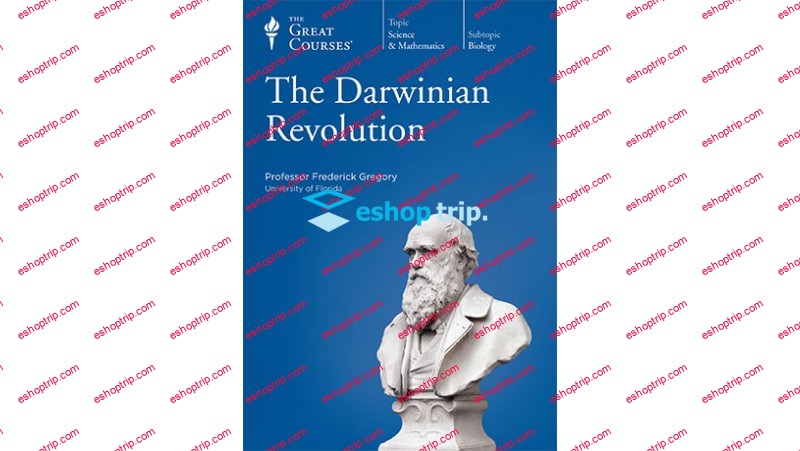
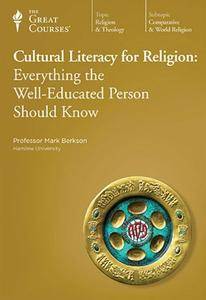


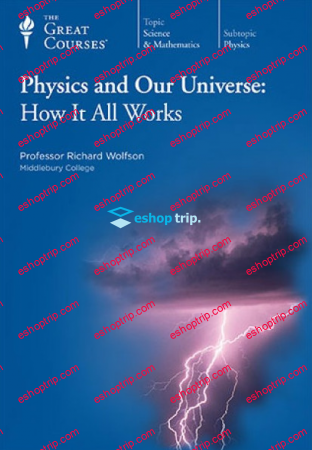

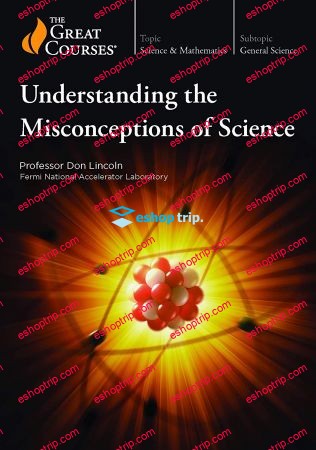
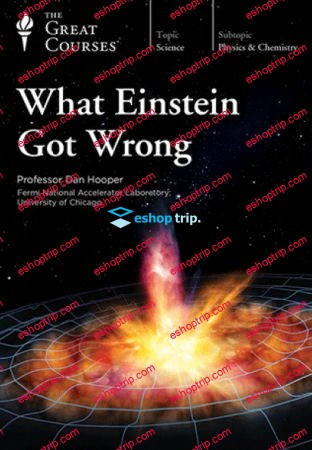



Reviews
There are no reviews yet.